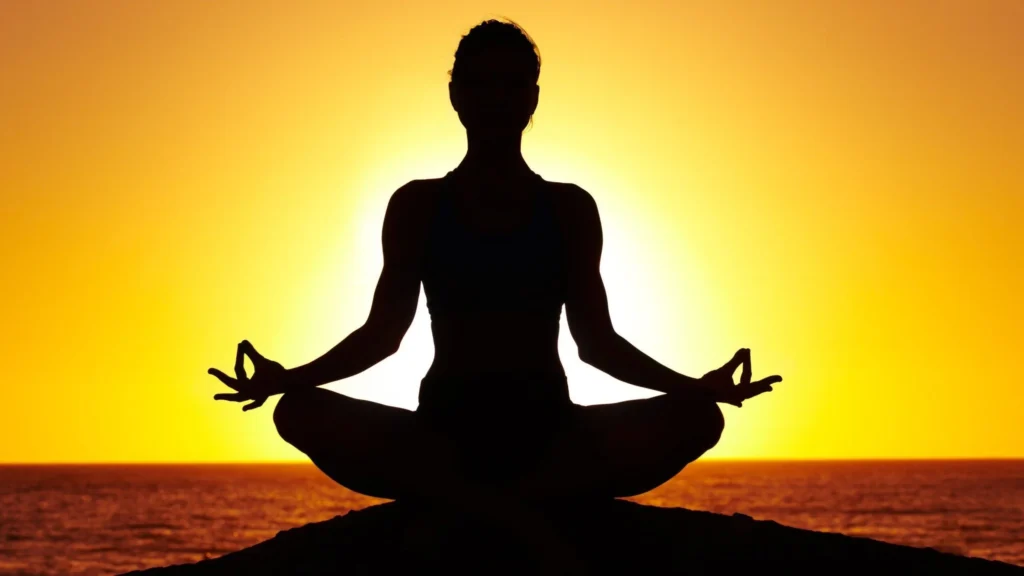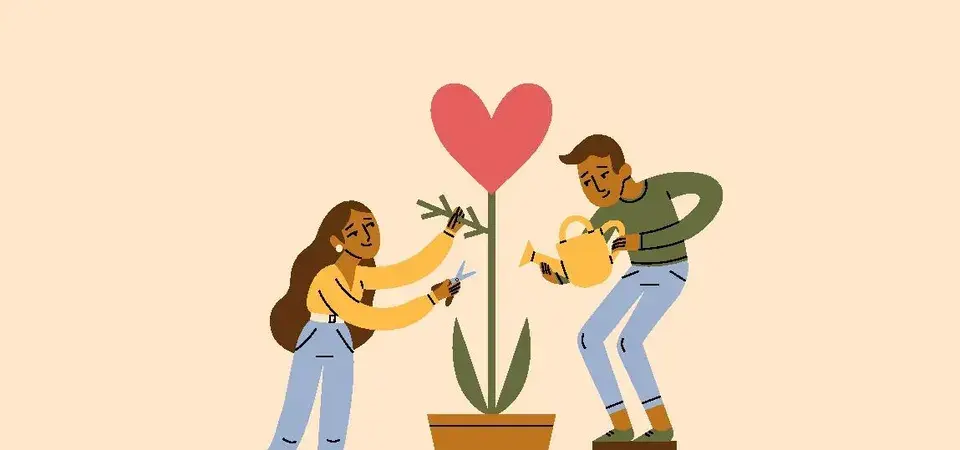Most of us know the feeling of racing through life. I spent years trying to balance work deadlines, family commitments, and endless digital notifications. My mind never stopped, and peace seemed like a distant luxury.
Life changed after I found that there was something remarkable about meditation. This ancient practice has grown into a scientifically-backed method that helps manage our modern challenges. It addresses everything from stress and anxiety to poor sleep and decreased focus.
Meditation and mindfulness are familiar concepts to many. Understanding their true effect can completely change your life. My personal trip and extensive research have led me to identify seven powerful ways meditation transforms our physical and mental well-being. I’ll share these benefits in this piece and show you how to blend this practice into your daily routine, whatever your experience level might be.
Understanding the Modern Need for Meditation
Technology has fundamentally changed our daily routines in our connected world. Recent studies show that smartphone usage has reached a staggering 61.7% prevalence among users. This shift has revolutionized how we work, communicate, and even relax.
The overwhelmed digital lifestyle
Digital overload has become a reality in our lives. Technology usage has increased by 15%, and people constantly switch between screens, apps, and notifications. This digital immersion changes our habits and affects our brain’s functioning. It compromises our sleep patterns and raises the risk of various mental health challenges.
Rising mental health challenges
Mental health challenges have reached unprecedented levels today. 23.1% of U.S. adults – about 59.3 million people – lived with a mental illness in 2022. The situation became more alarming during the first year of the COVID-19 pandemic, when global anxiety and depression rates jumped by 25%.
Science behind meditation's effectiveness

Meditation proves its true value here. Research has found that mindfulness meditation can reduce stress, anxiety, and depression by a lot. The neurological impact of meditation fascinates me – it changes our brain’s response to stress by:
Dampening activity in our amygdala (the brain’s stress center)
Strengthening connections between the amygdala and prefrontal cortex
Helping us recover from stressful situations better
Scientific evidence confirms meditation’s lasting impact. Studies show it creates permanent changes in our brain and improves sustained attention and cognitive flexibility. These benefits last remarkably long – research shows improved attention can continue up to five years after mindfulness training.
Daily Life Transformation Through Meditation
My meditation practice over the last several years has shown me exceptional changes in the way I deal with everyday challenges and interactions. These changes aren’t just feelings – scientific research backs up why meditation creates such deep changes in our daily lives.
Boosted productivity and focus
My mind’s sharpness and focus have changed by a lot. Research shows that meditation actually strengthens our prefrontal cortex, the brain region that controls executive functions. This brain enhancement guides us toward better concentration and decision-making, which helps us stay on task without looking for distractions. Studies reveal that people who don’t meditate show brain patterns linked to higher distraction and poor focus. Meditators show patterns connected to present-moment awareness and self-control.
Better relationships and communication

The way meditation has revolutionized my relationships amazes me. Regular practice has helped me develop stronger emotional intelligence and communication skills. Research shows that meditation helps us connect and empathize with others, which creates stronger bonds. Meditation makes us more aware of ourselves and better at managing emotions. These improvements naturally flow into our daily interactions.
Improved decision-making abilities
The most practical benefit has been better decision-making. Meditation creates what researchers call “a calm mind with strong intuition and clarity” when we face important choices. People who keep taking meditation see these results:
Their thoughts become clearer and they see situations from different points of view
They learn to let go of emotional baggage that clouds judgment
Their gut feelings become sharper and decisions become quicker and more accurate
The results take time, but they run deep. Research proves that just a few minutes of daily meditation can improve our choices by a lot. Regular practice helps me keep my energy and enthusiasm up. This makes it easier to handle work pressure while staying mentally clear for good decisions.
Regular meditation practice develops what I call a “responsive rather than reactive” approach to life’s challenges. This transformation shows especially when you have workplace stress and relationship issues. You retain control even during tough times.
Physical Wellness Benefits
Meditation has changed how I understand the connection between our minds and bodies. My research and personal experience over the last several years shows that meditation does way beyond just helping our mental health.
Stress reduction and cortisol management
The way meditation changes our body’s stress response amazes me. Studies show that meditation has a most important effect on reducing blood cortisol levels. This becomes especially helpful for people with health challenges. The results stand out in at-risk populations and people who live with stressful situations.
Better sleep quality and patterns

Sleep problems affect 10-25% of the general population, but meditation shows remarkable promise here. Sleep quality improves because meditation tackles both mental and physical sleep issues. Research backs this up – mindfulness meditation helps people sleep better just like traditional treatments do. Meditation creates perfect conditions for restful sleep by slowing breathing, lowering heart rate, and reducing blood pressure.
Strengthened immune system response
My most amazing finding is about meditation’s effect on our immune system. Recent research found increased activity in 220 genes directly related to immune response. Meditation activated 97% of interferon-response genes, while mild COVID-19 patients showed only 76% activation. Research reveals meditation’s immune-boosting benefits:
Reduces inflammatory proteins in the body
Improves cell-mediated immunity
Makes biological aging markers better through improved telomere regulation
Research with 3,500 adults proves that meditation reduces stress-related inflammation. This matters even more today when our immune systems face constant challenges from environmental and psychological stress.
Creating a Sustainable Meditation Practice
Building a sustainable meditation practice isn’t overwhelming. The transformative power of meditation shows that success comes from starting small and building gradually.
Starting small with micro-sessions
Micro-sessions work amazingly well for beginners. Studies show that a daily practice of just 15 seconds in the first week helps build lasting habits. The sort of thing I love is that people get great results with multiple short sessions – just 5-10 minutes, 10-15 times throughout the day.
Building consistency through habit stacking
You’ll keep up your meditation practice by connecting it to your existing habits. Habit stacking makes the practice substantially more sustainable by attaching meditation to daily activities. To cite an instance:
After brushing teeth → 1-minute meditation
Before morning coffee → 5-minute breathing exercise
Post-work commute → 2-minute mindfulness practice
People who commit to these micro-sessions often meditate longer naturally. After the original 5 minutes, many feel drawn to continue their practice.
Overcoming common meditation challenges
My experience revealed obstacles that seemed tough at first. Mind wandering, physical discomfort, and emotional distress top the list of common challenges. But these aren’t setbacks – they’re natural steps in the process.
Setting realistic goals works best. Start with 5 minutes of guided meditation, three times per week, and increase as it becomes routine. Even 10-15 minutes each day brings substantial benefits.
Note that comfort is vital to staying consistent. The best position is one that works for you – sitting, walking, or lying down. A dedicated meditation space with calming elements like candles or peaceful music can improve your practice.
This gentle approach helps people meditate every single day with less effort than strict methods. Small beginnings naturally create a more meditative state throughout the day and bring lasting positive changes to daily life.
Conclusion
My trip with meditation has taught me that this ancient practice can help us tackle modern challenges. Regular practice lets us change how we deal with technology and it improves our daily interactions. Our physical health gets better in ways we can measure.
Science confirms what people have known for centuries – meditation reshapes our brains, bodies, and behaviors. The benefits backed by research include lower cortisol levels, stronger immune systems, better sleep, and clearer decision-making.
My success came from starting small. I didn’t try hour-long sessions right away. Simple 5-minute practices created lasting positive changes in my life. This simple method is available to everyone, whatever their experience level or daily schedule might be.
Meditation helps solve many of today’s problems. I used to doubt it would work, but now I see it as a vital tool to stay balanced in the ever-changing world. Note that every small step toward mindfulness brings you closer to a more centered, healthier life.






